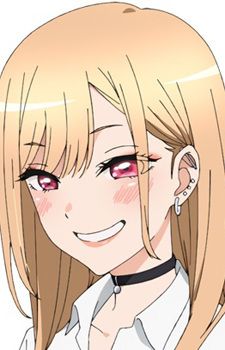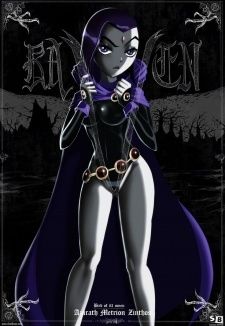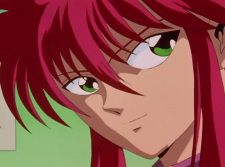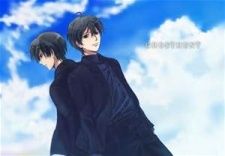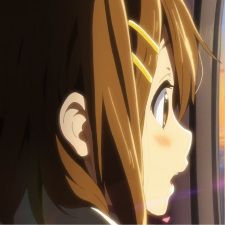Note: Given the nature of this series, this review will be split into two parts to cover both the Hoenn League and Battle Frontier. Regardless of what we think of Pokémon, it's a successful franchise, and the original series was popular even with its ups and downs. However, its popularity began to decline during the Johto season, and the Pokémon phenomenon that rocked the world lost its luster. That didn't mean Pokémon was done with, as the Ruby and Sapphire versions rolled around for the fairly young Game Boy Advance on November 21 of 2002 in Japan, and then March 19, 2003 in North America (April3rd in Australia and July 25th in Europe, can't forget you guys). The final Johto episode aired just weeks before the games' release in Japan, while in the U.S., it aired in late October of 2003, months after Ruby and Sapphire were released.
Statistics say the Ruby and Sapphire versions sold 16.22 million copies world-wide total as of March 2013. However, when compared to Red/Blue (31.38), and Gold/Silver (23.10), there's a plummet of sales. Why is that? It could be because of the new handheld, or it could be because the fans are moving on. Or it could be because the Hoenn region was different compared to Johto complete with new gameplay, and (gasp!) people don't like it when a formula that already works gets switched up. Who's really to say when there's millions of people with their own reasons for why they never bought the games. The anime was still on-going at this time, why didn't that help boost sales? Maybe it did, just not to the same extent as the original series.
Pokémon Advanced Generation is notable for being the first time the Pokémon anime tried something “new”, as in changing the location, changing companions (although Brock remained), changing battle strategies, and overall just better writing; and in America, there was a change in voice actors mid-series (more on that later). Saying there's “better writing” is a little weird to say since Pokémon's not the best story-driven anime in the world, not by a long shot. But when compared to the first three sagas, it's an improvement even without Takeshi Shudo's involvement (although it's sorely missed).
THE HOENN LEAGUE
STORY: Continuing on from where the original series left off, Ash Ketchum arrives in the Hoenn region with his partner, Pikachu, and shortly afterwards met the new trainer May from Petalburg City, who picked out a Torchic. Accompanying them are May's brother, Max, and Brock, who chose to return to traveling but still doesn't change in personality even with his new roster. Ash explores the new region and Pokémon in his quest to collect the badges to challenge the Hoenn League, and May discovers her love for Pokémon Coordination. Team Rocket is still adamant in catching Pikachu, but have convinced Giovanni they were setting the foundation for the rest of the organization to infiltrate the region. They develop a brief rivalry with two other teams, Team Aqua and Team Magma, who proved to be slightly more competent than the Rocket gang.
That's pretty much it. There's not a lot of difference outside of what's on the surface. Likewise with the previous seasons, fillers still abound, but they're not taking up half of the journey like in Johto, and it's still used to give the illusion the Hoenn region is huge—although Ash and company don't cross the ocean as much as the player does in the games, and it's all in a later season anyway.
There are improvements from the first season such as better gym battles, and the presence of Teams Aqua and Magma (mostly Magma), and the two teams do occasionally clash. The payoff, however, is disappointing to say the least. The Pokémon anime tends to do that. But even so, there's still some enjoyment to be had during the season, especially with a fresh Pokémon roster that aren't overshadowed by Ash's older Pokémon for once. The Pokémon Contests shakes up the formula a bit by giving May a character motivation of her own, as well as some different rules and performances, showing some impressive and uniques strategies in Pokémon moves both inside and outside of battle. Luckily, the journey to collect ribbons is given equal focus and importance as the journey to collect gym badges.
ART/ANIMATION: A continuation from the late Johto episodes, the digital art and animation is the same, and remains rather consistent throughout, though wonky art still slips through on occasion—this WAS still the awkward early-to-mid 2000s transition. The biggest upgrade are many Pokémon moves being done in CG to make them look flashier. Sadly, outside of the Pokémon Contest events, nothing of note sticks out in this department. The two-parter episodes involving Kyogre and Groudon could've had impressive animation with their battles, but they were reduced to painted (or colored pencil) stills. They could technically pass off as beautiful paintings, though.
I didn't know where to put this, but I figured I'd mention it here. One of Pokémon's well-known traits is its “Who's That Pokémon?” eye-catch halfway into each episode. While it's still on-going in Japan, in America, 4KIDS decided to go a different direction starting in episode 41 with Advanced Challenge. Up until their contract expired, “Who's That Pokémon?” was replaced with “Trainer's Choice”, kind of like a trivia question in which out of three choices, the viewer chooses basically the “best” choice for type advantages, or what Pokémon evolves into what. It's a pretty good idea—however, someone in charge of it apparently was not that knowledgable about his or her Pokémon facts, with some questions having either multiple possible answers or incorrect answers, and some Pokémon's names were misspelled. What most people remember is the most infamous moment of “Trainer's Choice”, episode 77's “Which of these Pokémon evolves into Seviper?”. Advanced Battle got better with it in asking actual trivia with match-ups, battle strategies, and callbacks to episodes, but the damage had been done.
SOUND: The soundtrack is honestly the best part of this section and it's not just because it's full of trumpets—well, in actuality, the brass section (the trombone was the most prominent). Well, the reason is because most of the score, like with the previous seasons, are covers of the game score, and they sound fantastic. Unfortunately, the dub noticeably got iffy with the music by this point unlike with the previous seasons. The original soundtrack does still remain (which, if YouTube is anything to go by, consists of less new scores than with Johto), but more often than not, you're hearing the 4KIDS-implemented score from the movies or albums, and it's a little more easier at this point to not catch the original score if you weren't already familiar with it.
Veronica Taylor, Rachael Lillis, Eric Stuart, Maddie Blaustein, and Dan Green still give good performances. However, by Advanced Battle, the vocal evolution of the cast becomes apparent, particularly with Team Rocket. Jessie had the least change to her voice, but James got noticeably whinier, and Meowth's Joisey accent had become almost slurred that he started sounding a little like Elmur Fudd.
CHARACTERS: This is a bit hard to truly gauge because the Hoenn saga's a continuation. Ash, Brock, and Team Rocket are the same as they were from before (sort of with Team Rocket, I'll explain shortly), although Ash has some character development in becoming a mentor to his new friend, May—I say some since this is mainly up until after Advanced Challenge when she becomes able to stand on her own two feet, then he seemingly regresses back to the same-old Ash, just mature. There's also no shortage of COTDs, though whether they stick with you or not depends on your tastes.
Judging the new main characters, they aren't bad. May is a rookie with some lack of self-confidence, and her brother is a know-it-all who gets annoying at times. What makes the two endearing, however, is their sibling relationship. They have their squabbles, but they truly care about each other. What also makes them a little bit different is they're the children of the Petalburg City gym leader Norman, and we do get to see them as a family on occasion. Sure, when it comes to Brock and Misty, we've seen them interact with their families, but not to the same extent. Still, the character development all went to May as she slowly became more confident and independent, who gained rivals in Drew, Jessie (in various disguises), and later Harley in Advanced Battle. Max was hinted at to have some gift with Pokémon bonding, but due to his young age, there wasn't much he could do about it, even though he once made a promise to a Ralts to be its trainer one day. He also later took up Misty's mantle of dragging Brock away by the ear whenever he got girl-crazy, but that's got nothing to do with his character in the slightest.
Team Rocket... ehhhhh, this is basically a continuation of their Johto personalities, except it got taken a step further depending on the writer. The Giovanni fantasies were a thing at that time, but they became ubiquitous by this saga that it began to get rather uncomfortably annoying rather quickly. Sure, it's a possibility we as children loved those segments, but the older we got, the more creepy and “ho yay” (although not necessarily in the same boat) it became. Maddie Blaustein enjoyed doing those parts, good for her, but when looking at it from a character perspective, it's like looking into the mind of a mad man, or in this case, a mad cat who may-or-may-not have a thing for his boss. This is similar to how Brock chases after every skirt he sees, except this is how Meowth sees his boss and believes this is how he's going to react for every rare Pokémon they bring to him. The ways the Pokémon are being used in these fantasies are rather reminiscent of servitude, and Giovanni doesn't look like the man who treats his Pokémon very well outside of his Persian (who is absent from all of these fantasies, funnily enough), but I personally doubt he'd use rare Pokémon for such mundane tasks as breaking open coconuts for him or be his personal alarm clock or workout partners.
THE BATTLE FRONTIER
STORY: Upon coming home from Hoenn, Ash stops by for a quick invited battle with Agatha, the temporary Viridian City gym leader and one of the Elite Four, accompanied by a man named Scott, who took interest in Ash because of his skills in the Hoenn League. Although Ash lost, Scott encouraged him to take the Battle Frontier challenge, and thus he travels the Kanto region once more, briefly visiting familiar places along the way, but there were more new places than there were old.
ART/ANIMATION: Outside of CG becoming steadily more abundant, there are no changes, although the battles get more clever. But there is a funny scene in the Deoxys two-parter of Meowth having one of his fantasies of Giovanni riding on the back of a Deoxys. You might've seen it around.
CHARACTERS: Everything still carries over, there are no changes to the main cast, not even to old faces who make appearances (since this is in the Kanto region). The Frontier Brains, however, fall under here. The problem(?) is, they don't all get the same amount of character development—well, screentime. The most notable Brains are Lucy of Battle Pike, Anabel of Battle Tower, and Brandon of Battle Pyramid, the former two because they had showed interest in either Ash or Brock (weirdly enough), though with Ash for the most part, it was mainly due to his skills.
SOUND: The voice cast is where this gets messy for the dub. From the beginning of the saga until “Pasta La Vista!”, it's still the classic 4KIDS cast. But thanks to the previous airing of “Mastermind of Mirage Pokémon”, the audience knew the voice cast was going to change at some point or another and were fearing the worst. This didn't come to fruition until the contract expired and there was a change of networks from Kids' WB to Cartoon Network (this was a problem personally, but by then I was turned away by the replacement of the voice actors, though I was disappointed to see it leave the network). Pokémon USA, wanting to find a cheaper company to produce the dub, went to TAJ Productions (when it still existed) where they cast newcomer (and actual Pokémon fan) Sarah Natochenny as Ash Ketchum, plus others—although a few such as James Carter Cathcart (Jimmy Zoppi) still remained, but were cast in new roles, or in the case of the narrator, Rodger Parsons returned.
Weirdly enough, the change wasn't AS jarring as people claim it to be. It's a gradual change in style in terms of the localization and script, but the quality wasn't any different. The theme and end credits songs are the only things I can say weren't as good as 4KIDS' themes, although they're both short and easy to brush off. On the plus side, the soundtrack from the original remained, so it's not a constant cacophony against your eardrums like it was before.
But needless to say, the Battle Frontier can be the roughest sit of the dub if you let it get to you. Although yes, some episodes and characters were better dubbed than others.
ENJOYMENT AS A WHOLE: Eleven years—that is how long it took to finish Advanced Generation. Hoenn was oddly enough not as memorable as the original series was despite being the “more recent” of my childhood. Upon my rewatch, I have no idea why that was the case, though it could be there was something different about it from the start. But there wasn't anything completely terrible about it, so I must've just had slowly lost interest. And even as an adult viewer, it was still a bit of a chore at times to watch even before the Battle Frontier saga, which had a noticeable change to the feel of the show. The season may not have had the 4KIDS touch, but it didn't really need to.
Still, there were good moments, good ideas, and memorable characters that helped make the Hoenn saga stand out from its predecessor. The transition from Johto to Hoenn was a bit of a whiplash, and again with Battle Frontier, but over time, it calmed and felt more natural. There were more places to see in Hoenn than in the past regions, because this time, it was an entire region getting coverage. It left almost no stone unturned, though in the process, it still skimmed over a bit in order to progress.
While not a personal favorite, Advanced Generation still left a good impression behind, generously rewarding those who stuck with it to the end. I'd dare say it was a better reward than the end of the Johto saga. But like they say, the journey continues, and so it does.


